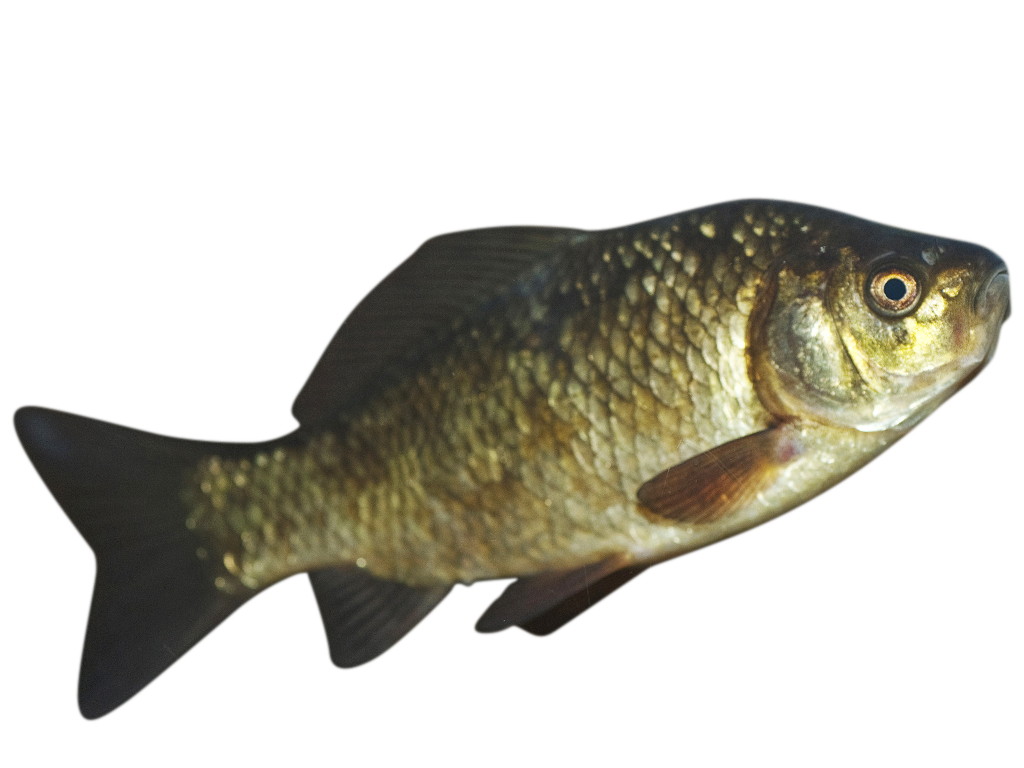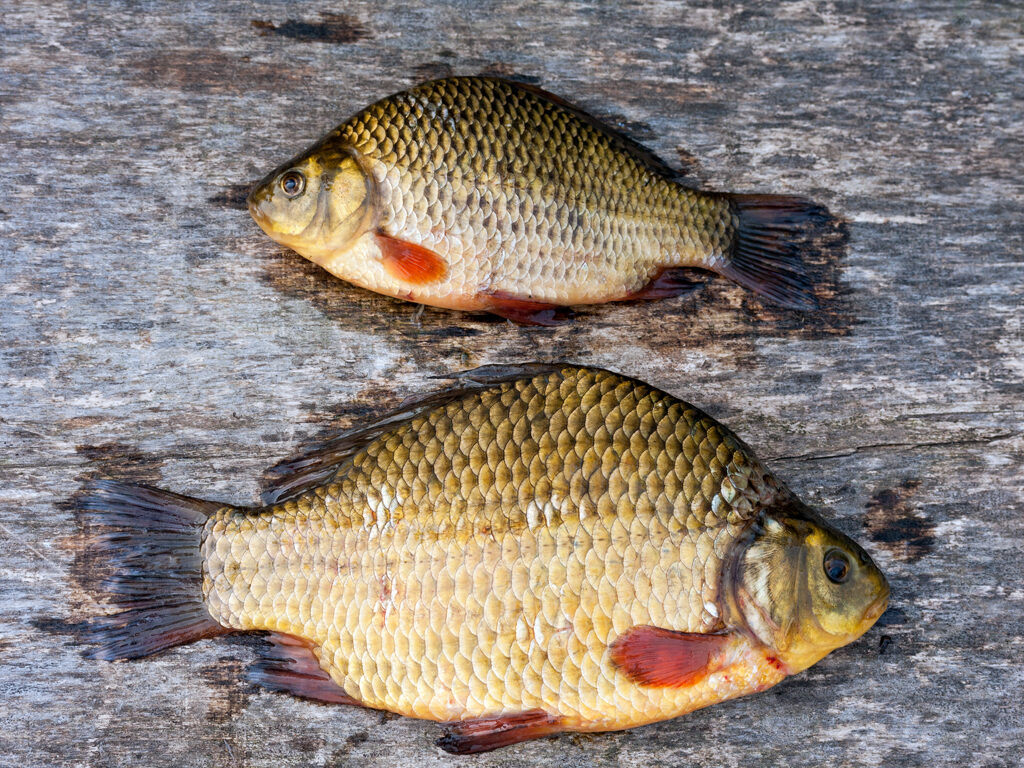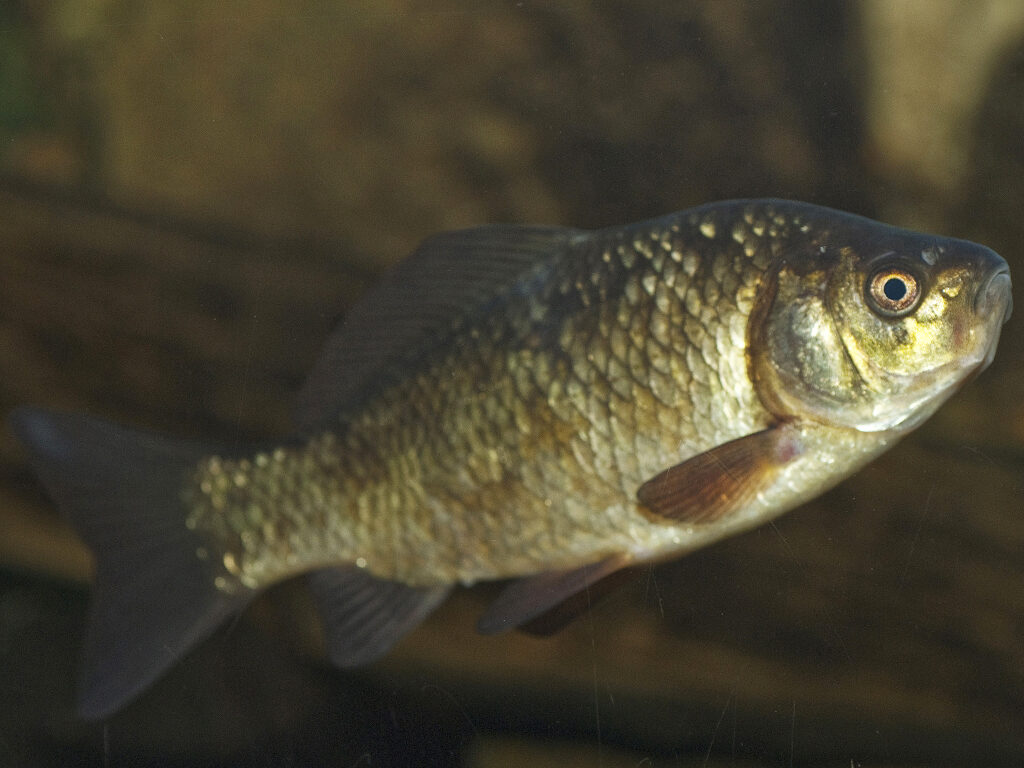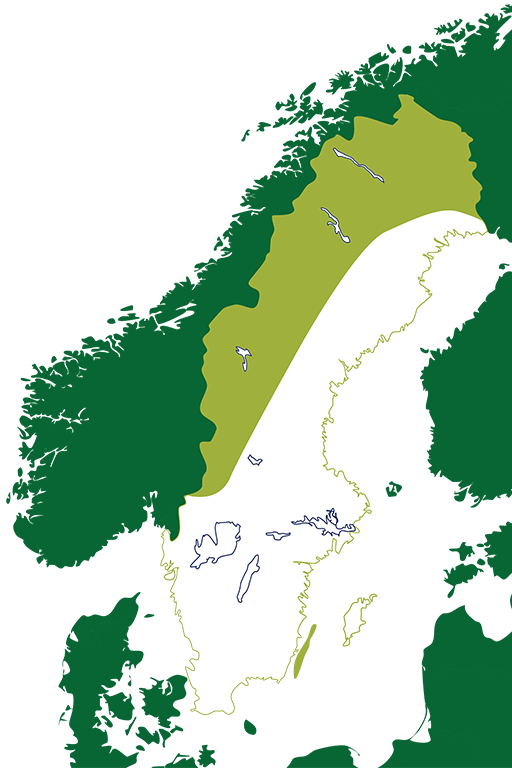Crucian Carp
Carassius carassius

Raises their backs
Crucian carp that live in lakes increase their height when a predatory fish threatens them! A crucian carp with a high back is harder for a pike to swallow. If there are no predatory fish in the lake, the crucian carp are long and narrow.
But if you were to put a pike into a lake where there had been no predatory fish, the crucian carp can smell it is there. Then they start to change shape and raise their backs!

Hibernates during winter
How can crucian carp survive when a lake freezes to ice?
They snuggle down into the mud on the lake bottom and hibernate. We humans store fat. The crucian carp stores glycogen, a huge sugar molecule. From this, lactic acid is made, which the crucian carp makes into alcohol. This is called anaerobic metabolism. In this way the carp get energy without eating anything. And their body tissue does not freeze.
Don’t the carp get drunk? Probably not. The alcohol disappears out through their gills without the carp getting drunk.

Distribution in Sweden

Throughout
Sweden except in
the northern
mountain region.
White marking = Distribution
Threat based on the Red List

Trade regulations
CITES: Not listed.